
Current Affairs is the most important area in all competitive exams. But the difficulty level is very high. That’s why; many aspirants get confused, how to select Current Affairs for Preparation of Competitive Examination? In this Post, Daily Current Affairs 8 September 2023, we have tried to cover each and every point and also included all important facts from National/ International news that are useful for upcoming competitive examinations such as UPSC, SSC, Railway, State Govt. etc.
So, here is the Top News of the Day for 8 September to help you prepare the Latest Current Affairs part. After reading this section, you can successfully attempt Current Affairs Quiz.
Current Affairs for Competitive Exam – 8 September 2023
International Literacy Day 2023: Date, Theme, History and Significance
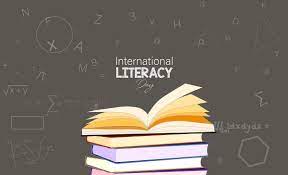
Every year on September 8, International Literacy Day is observed to promote the importance of literacy for dignity and human rights, as well as a literate and sustainable society.The day is celebrated by the United Nations Educational, Scientific and Cultural Organisation (UNESCO) at the global, regional, country, and local levels across the world.
Daily Current Affairs Quiz: September 2023
International Literacy Day 2023, Theme
The theme is “Promoting literacy for a world in transition: Building the Foundations for Sustainable and Peaceful Societies.” Literacy Day 2023 will be commemorated globally, regionally, nationally, and locally under this topic. At the global level, a conference will be organized in person and online on Friday, 8 September 2023, in Paris, France. This global celebration will include the award ceremony of the UNESCO International Literacy Prizes to announce this year’s outstanding prizewinning programmes.
International Literacy Day 2023, Significance
UNESCO estimates that there are more than 770 million people who are considered illiterate across the world. The definition means that these individuals cannot read or write in at least one language. A vast majority of this figure is made up of women and nearly half of them are adults. Several low-income countries across Africa have literacy rates of less than 45 percent, as poverty and illiteracy often are correlated issues with the public education system in these areas also not being funded enough to support the national education burden. In its Global Education Monitoring report, UNESCO argued that governments must bear a bigger burden for delivering education to children and regard the education pipeline as one system in order to eradicate illiteracy.
International Literacy Day 2023, History
The United Nations Educational, Scientific and Cultural Organization (UNESCO) in 1966, at the 14th session of its General Conference, announced the event and the first International Literacy Day was celebrated in 1967. The day to mark International Literacy Day was set up by UNESCO on October 26, 1966, in the 14th session of UNESCO’s general conference, International Literacy Day was first celebrated in 1967. The goal of this day is to highlight the importance of literacy to individuals, communities, and society because literacy is the way to a well-educated and efficient society.
Most Populous Country In The World Latest Updates

As of the latest available data, India has emerged as the most populous country in the world, surpassing China. With a population of approximately 142.86 crore, India has surpassed China’s population by nearly 29,56311 lakh to become the world’s most populated country.
Daily Current Affairs Quiz: September 2023
Most Populous Country In The World
India has the world’s largest youth population, with over 908 million people under the age of 35. This accounts for 66% of India’s overall population. With nearly 255 million people aged 15 to 24, India has the world’s largest youth population. This large youth population presents both challenges and opportunities for India. On the one hand, it means that India has a large and growing workforce. This could be a major asset for the country’s economic development. On the other side, it implies that India would be required to offer education, healthcare, and other amenities to a big number of young people. This can be difficult, particularly considering India’s limited resources.
Population Statistics and Data Collection Methods
- Population statistics encompass various demographic data, including the count of individuals residing in a country or region, the number of births and deaths, as well as estimations of life expectancy and population growth trends.
- This information is frequently gathered through regular population censuses, with the 1st of January serving as a common reference point.
- Additionally, population registers are increasingly being utilized as an alternative source to gather such valuable demographic insights.
Most Populous Country In The World List
| Rank | Country | Population | World Share (In %) |
| 1 | India | 1,428,627,663 | 17.76 |
| 2 | China | 1,425,671,352 | 17.72 |
| 3 | United States | 339,996,563 | 4.23 |
| 4 | Indonesia | 277,534,122 | 3.45 |
| 5 | Pakistan | 240,485,658 | 2.99 |
| 6 | Nigeria | 223,804,632 | 2.78 |
| 7 | Brazil | 216,422,446 | 2.69 |
| 8 | Bangladesh | 172,954,319 | 2.15 |
| 9 | Russia | 144,444,359 | 1.80 |
| 10 | Mexico | 128,455,567 | 1.60 |
Causes of India’s High Population
- Historical population trends: Throughout history, India has maintained a consistently high population, particularly in its fertile northern plains. This region’s favorable climate allows for the cultivation of both wheat and rice, providing abundant food compared to many other parts of the world.
- Poverty and illiteracy: Impoverished families often believe that a larger family translates to more earning members. Some view having more children as a way to ensure support in old age. The prevalence of poverty and illiteracy also affect family planning decisions.
- Age-old cultural norms: Traditional beliefs in India prioritize sons as the primary breadwinners for families. This long-held idea, known as “Son Meta preference,” places tremendous pressure on parents to continue having children until a male child or the desired number of male children are born.
- Illegal migration: Notably, illegal migration from neighboring countries like Bangladesh and Nepal has contributed to increased population density in India.
- Lack of awareness about family planning: Limited knowledge and awareness about family planning methods and their benefits, as well as government schemes related to family welfare and access to free birth control measures, have resulted in unwanted pregnancies and ultimately contributed to population growth.
Population control measures that can be implemented
- Raising the Minimum Age of Marriage: Since fertility is linked to the age of marriage, it is essential to increase the minimum age for marriage. The legal marriage age in India is presently 21 years for men and 18 years for women. To guarantee compliance, strict enforcement of this rule and public awareness programmes are required.
- Promoting Education: Widespread education can positively influence people’s perspectives. Educated individuals tend to make informed decisions, delaying marriage and embracing smaller family norms. Women who are educated prioritise their health and choose fewer pregnancies, resulting in lower birth rates.
- Adoption: Encouraging adoption is an effective means of population control. Couples who are unable to have biological children despite medical interventions should be encouraged to adopt orphaned children, benefiting both the orphans and the adopting parents.
- Urbanization: Promoting urbanization can contribute to reduced population growth. Studies indicate that urban areas generally experience lower birth rates compared to rural areas, making urbanization a potential solution.
- Strict Birth Control Measures: Although China’s strategy may not be appropriate for India, numerous government-funded organisations, such as the Family Planning Association of India, can actively promote family planning as a basic human right. Encouraging a two-child norm voluntarily can help reduce birth rates.
Key takeaways for competitive examinations
- Registrar General & Census Commissioner of India: Mritunjay Kumar Narayan
SBI Card unveils additional features on its super-premium card ‘AURUM’

SBI Card, India’s largest credit card issuer, launched new features of its super-premium card ‘AURUM’, targeted at the premium section of society, such as high-net-worth individuals. AURUM cardholders will now be able to receive perks worth up to Rs 2 lakh per year based on their expenditure, thanks to the upgrades. The card offers unlimited international lounge access to cardholders, as well as four international lounge visits for accompanying guests. In addition, as a welcome gift, the card includes a one-year Club Marriott membership.
Daily Current Affairs Quiz: September 2023
About the AURUM
- AURUM has been tailored to meet the discerning taste and lifestyle of the globetrotting and high-flying executives who pursue excellence in every aspect of their life. It has become one of the most coveted cards in the super-premium segment. Looking at the admiration it has garnered so far, we decided to take the cardholders’ experience a notch higher.
- All in all, AURUM cardholders can expect a more rewarding, richer, and more luxurious experience. The joining and yearly membership charge for this by-invitation-only card is Rs 9,999, which would be refunded after the cardholder spends Rs 12 lakh in the card membership year.
- Key takeaways for competitive examinations
- SBI Card Headquarters: Gurugram
- SBI Card CEO: Rama Mohan Rao Amara (30 Jan 2021–)
- SBI Card Parent organization: State Bank of India
- SBI Card Founded: October 1998Headquarters: Gurugram
Indian Air Force And Drone Federation Of India To Co-host Bharat Drone Shakti 2023
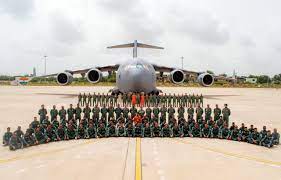
The Indian Air Force (IAF) and the Drone Federation of India are teaming together to co-host ‘Bharat Drone Shakti 2023.’ This upcoming event, scheduled for the 25th and 26th of September 2023, will take place at the IAF’s airbase in Hindan (Ghaziabad). It is anticipated to be a pioneering exhibition highlighting the prowess of the Indian drone industry, with more than 50 live aerial demonstrations.
Daily Current Affairs Quiz: September 2023
Diverse Array of Demonstrations
‘Bharat Drone Shakti 2023’ is set to impress attendees with a diverse array of live aerial demonstrations. Survey drones, farm drones, fire suppression drones, tactical surveillance drones, heavy-lift logistics drones, loitering munition systems, drone swarms, and counter-drone technologies will all be featured at the event. This comprehensive exhibition will underscore the versatility and innovation present within the Indian drone sector.
A Gathering of Innovators and Enthusiasts
Anticipated to attract approximately 5,000 attendees, ‘Bharat Drone Shakti 2023’ will bring together a diverse audience. This includes representatives from central government entities, state ministries, public and private companies, armed forces, paramilitary forces, and delegates from friendly nations. The event will also provide an opportunity for academics, students, and drone enthusiasts to interact with cutting-edge innovations in the field.
India’s Aspiration to Become a Global Drone Hub
Above all, ‘Bharat Drone Shakti 2023’ serves as a testament to India’s commitment to becoming a global drone hub by 2030. Through collaborations, competitions, and events like this, India aims to position itself at the forefront of drone technology, fostering innovation and strengthening its capabilities in both civil and defense applications. The event will not only highlight the current potential of the Indian drone sector, but will also pave the way for a future in which drones play an important part in India’s technological landscape.
IAF’s Utilization of Remotely Piloted Aircraft
The Indian Air Force (IAF) has been at the forefront of integrating drone technology into its operations. Remotely Piloted Aircraft (RPA) have become indispensable tools for Intelligence Surveillance & Reconnaissance (ISR) operations. The IAF’s confidence in the emerging drone design and development capabilities within India is exemplified by initiatives such as the Meher Baba Swarm Drone competition, which aimed to tap into indigenous drone potential. Ongoing iterations of this competition are currently in progress, nurturing innovation in the Indian drone ecosystem.
SPG Chief Arun Kumar Sinha, Responsible For PM Modi’s Protection, Passes Away
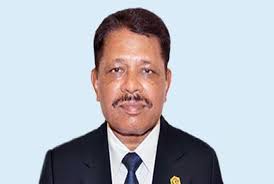
Arun Kumar Sinha, who served as the Director of the Special Protection Group (SPG), has passed away at the age of 61 while undergoing treatment at a hospital in Gurugram, where he had been receiving medical care for some time. Sinha had a critical position in the country’s security structure, as he was in charge of providing proximate security to India’s Prime Minister. This significant duty underscores the magnitude of his contributions to the nation’s security.
Daily Current Affairs Quiz: September 2023
A Distinguished Career
Arun Kumar Sinha, an Indian Police Service (IPS) officer from the 1987 Kerala cadre, had a distinguished career spanning multiple decades. His career with the Special Protection Group (SPG) began in March 2016, when he assumed the role of its 12th director. His appointment was made on a contractual basis, lasting until May 31, 2024, at the rank and compensation level of director general of police. On May 31, he was granted a one-year extension in service, underscoring his unwavering commitment to his responsibilities. This tenure allowed him to lead the SPG with utmost dedication and professionalism.
A Journey of Service
Arun Kumar Sinha’s career was not limited to his role in the SPG. He had previously served in various capacities in his cadre state, Kerala, and with the Border Security Force (BSF) at the Centre. His varied experiences and dedication to his career helped him to become a well-rounded and respected officer.
The SPG’s Crucial Role
The Special Protection Group (SPG) was established in 1985 and has since played a vital role in safeguarding the Prime Minister of India. With an estimated strength of approximately 3,000 personnel, the SPG remains at the forefront of ensuring the security of the country’s highest office.
Global Fintech Fest 2023: Unveiling the World’s Premier Fintech Conference
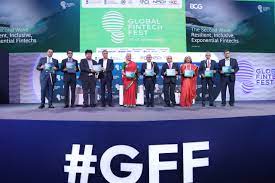
The Global Fintech Fest (GFF) is set to reclaim its title as the world’s largest fintech conference in 2023, in a stunning return. This year’s event promises to be a spectacular showcase of innovation and collaboration in the fintech industry. Let’s delve into the highlights of GFF 2023.
Daily Current Affairs Quiz: September 2023
Global Fintech Fest 2023: Event Overview
- Duration: 3 Days
- Diverse Tracks: 13
- Eminent Speakers: 800+
- Cutting-Edge Reports: 15+
- Academic Insights: 81 Papers
- Interactive Workshops: 50+
- Global Reach: 125+ Countries
- Engaging Sessions: 250+
- Investor Presence: 250+
- Exhibitors: 500+
- Expansive Venue: 150K Sq. Ft
- Innovation Hub: 3 Hackathons
- Distinguished Delegates: 50,000+
Global Fintech Fest 2023: Key Supporters and Organizers
GFF 2023 enjoys unwavering support from esteemed governmental and regulatory bodies, affirming its significance in the fintech landscape.
- Ministry of Electronics and Information Technology (MietY)
- Department of Economic Affairs (DEA), Ministry of Finance
- Reserve Bank of India (RBI)
- International Financial Services Centres Authority (IFSCA)
This monumental event is organized by:
- Payments Council of India (PCI)
- Fintech Convergence Council (FCC)
- National Payments Corporation of India (NPCI)
Global Fintech Fest 2023: Inauguration by Smt. Nirmala Sitharaman
The conference began with a spectacular inaugural event attended by Smt. Nirmala Sitharaman, the Government of India’s Minister of Finance. Her remarks emphasized the transformative role of fintech in India’s financial landscape.
- Fintech’s Inclusive Role: Smt. Sitharaman highlighted how fintech is fostering greater financial inclusion in India.
- Building a Global Responsible Financial Ecosystem: She stressed the importance of fintech in shaping a responsible global financial ecosystem.
- Dynamic Financial Inclusion Tool: Fintech, in her words, has evolved into a robust and dynamic tool for financial inclusion.
Global Fintech Fest 2023: Conference Theme
GFF 2023 revolves around a central theme that embodies the fintech industry’s aspirations and responsibilities.
- Theme: ‘Global Collaboration for a Responsible Financial Ecosystem: Inclusive | Resilient | Sustainable’
Global Fintech Fest 2023: Global Partnerships
GFF 2023 has garnered support and participation from renowned international agencies and countries.
- International Collaborators: The World Bank, the Global Knowledge Partnership on Migration and Development (KNOMAD), the Consultative Group to Assist the Poor (CGAP), and Women’s World Banking are among the notable partners.
- Country Partners: Leading nations such as Australia, Brazil, Great Britain, Germany, and Israel have joined as Country Partners for GFF 2023.
India extends support to SCO member countries to enhance legal capabilities

The 10th meeting of the Ministers of Law and Justice of Shanghai Cooperation Organisation (SCO) countries was held in September 2023.
Daily Current Affairs Quiz: September 2023
Highlights include
To cooperate between Ministries of Law and Justice of SCO Member nations to enhance cooperation in legal and judicial spheres.
Continue to work on the implementation of the Co-operation Agreement.
Organise conferences, legal cooperation fora etc for better exchange of experience.
Satyajit Majumdar honored with Dr V G Patel Memorial Award 2023
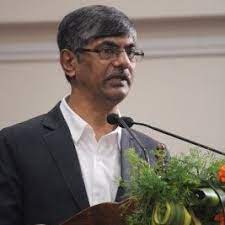
Mumbai Professor Satyajit Majumdar, dean of School of Management and Labour Studies from Tata Institute of Social Sciences (TISS), received the ‘Dr V G Patel Memorial Award-2023 for his work in promoting and strengthening entrepreneurship in India.
Daily Current Affairs Quiz: September 2023
He is widely acknowledged as the Father of Entrepreneurship Movement in India.
He has mentored more than 350 startups, including 40 in Jammu and Kashmir and group startups in Jhabua, West Bengal.
SBI announces interoperability of CBDC and UPI for seamless transactions

Central Bank Digital Currency (CBDC) pilot project, multiple Indian banks have announced the introduction of Unified Payments Interface (UPI) interoperability feature on the Digital Rupee application.
Daily Current Affairs Quiz: September 2023
Digital Rupee app users can scan any QR code to make payments for groceries and daily expenses.
State Bank of India (SBI), Kotak Mahindra Bank, Yes Bank, Axis Bank. HDFC Bank, Canara Bank, among others are live with the inclusion of UPI interoperability.
West Bengal Assembly Resolution On ‘Poila Baisakh’ As State Foundation Day
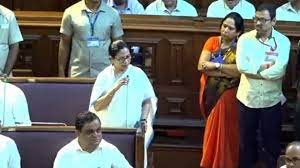
On April 15th, the West Bengal assembly made a landmark step by passing a resolution declaring Bengali New Year’s Day, known as Poila Baisakh, as the state’s foundation day.
This decision comes amid controversy and disagreements over the date chosen for this celebration. Chief Minister Mamata Banerjee has been a strong advocate for this change, emphasizing that the day will be observed irrespective of the approval of the state’s governor.
Daily Current Affairs Quiz: September 2023
A Landmark Resolution
The motion, introduced under Rule 169, proposes declaring Poila Baisakh as ‘Bangla Diwas’ and making Nobel laureate Rabindranath Tagore’s masterwork, ‘Banglar Mati, Banglar Jol’ (Bengal’s soil, Bengal’s water), the official state song. This historic decision was passed with a majority vote of 167 members in favor out of a total of 294 members in the House. However, not everyone in the assembly was in agreement.
Opposition from the BJP
The Bharatiya Janata Party (BJP), with 62 MLAs in the West Bengal assembly, firmly opposed the resolution. They argue that the state’s foundation day should be celebrated on June 20, a date with historical significance. On that day in 1947, MLAs from West Bengal voted for the partition of Bengal, an event that was celebrated as Bengal Day by some.
Mamata Banerjee’s Resolute Stance
Chief Minister Mamata Banerjee remains steadfast in her support for the new foundation day. She emphasized that the People of Bengal don’t support June 20, a date associated with the violence and bloodshed of the partition, as the state’s foundation day. Banerjee earlier expressed her dissatisfaction with the central government’s choice of June 20 as the state’s foundation day, calling it ‘incorrect.’
West Bengal’s Bold Step in Preserving Cultural Identity
In the face of these differing opinions, West Bengal’s choice to embrace its cultural heritage by observing Poila Baisakh as the state’s foundation day represents a significant step, one that highlights the state’s rich history and its commitment to preserving its cultural identity.
GST rules for casinos, e-games notified

The Ministry of Finance has recently issued a significant notification outlining amendments to the Goods and Services Tax (GST) rules pertaining to online gaming and casinos. These modifications are intended to address the taxation methods used by online gambling companies and casinos.
Daily Current Affairs Quiz: September 2023
GST on Casino Chips
One of the key changes introduced by these amendments is that individuals visiting a casino are now required to pay GST on the full value of the chips they initially purchase. This means that the GST will be levied on the entire amount spent on chips at the time of purchase.
Valuation of Supply
The GST rules now include two new paragraphs, 31B and 31C, that specify the valuation of the supply. Under these changes, any claims made by players are to be included in the total amount paid or payable, ensuring a comprehensive taxation approach.
No Refunds on Returned Amounts
The notification clarifies that any refunded or returned amount, such as when a player returns some of their initially acquired chips and receives a cash refund, will not result in a refund of GST. Following refunds have no effect on the GST collected at the time of purchase.
Treatment of Winnings
Winnings by any player will remain tax-neutral. This is because the entire GST is collected at the first stage, ensuring that winnings are not subject to additional taxation. If a player uses their winnings, or a portion thereof, in a subsequent game without withdrawing, no GST will be applied to that amount.
Legislative Approval
In August, the Parliament approved amendments to the Central and Integrated GST laws, imposing a 28 percent tax on the full face value of bets in online gaming, casinos, and horse race clubs. Without debate, the Rajya Sabha returned the proposed legislations to the Lok Sabha by voice vote. Subsequently, the Lok Sabha approved the two money bills: The Central Goods and Services Tax (Amendment) Bill, 2023, and The Integrated Goods and Services Tax (Amendment) Bill, 2023.
State Implementation
With the central government’s approval, it is now up to the states to pass these amendments in their respective state GST laws through their legislative assemblies. This measure would ensure that the amended GST laws for casinos and online gaming are implemented uniformly across the country.





